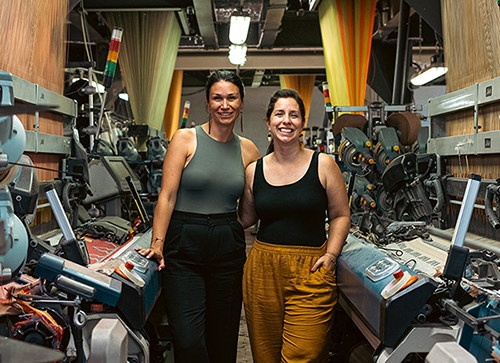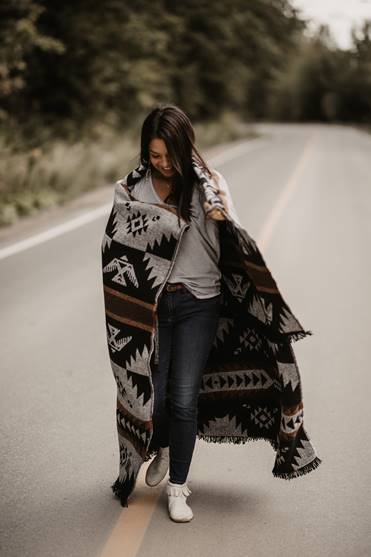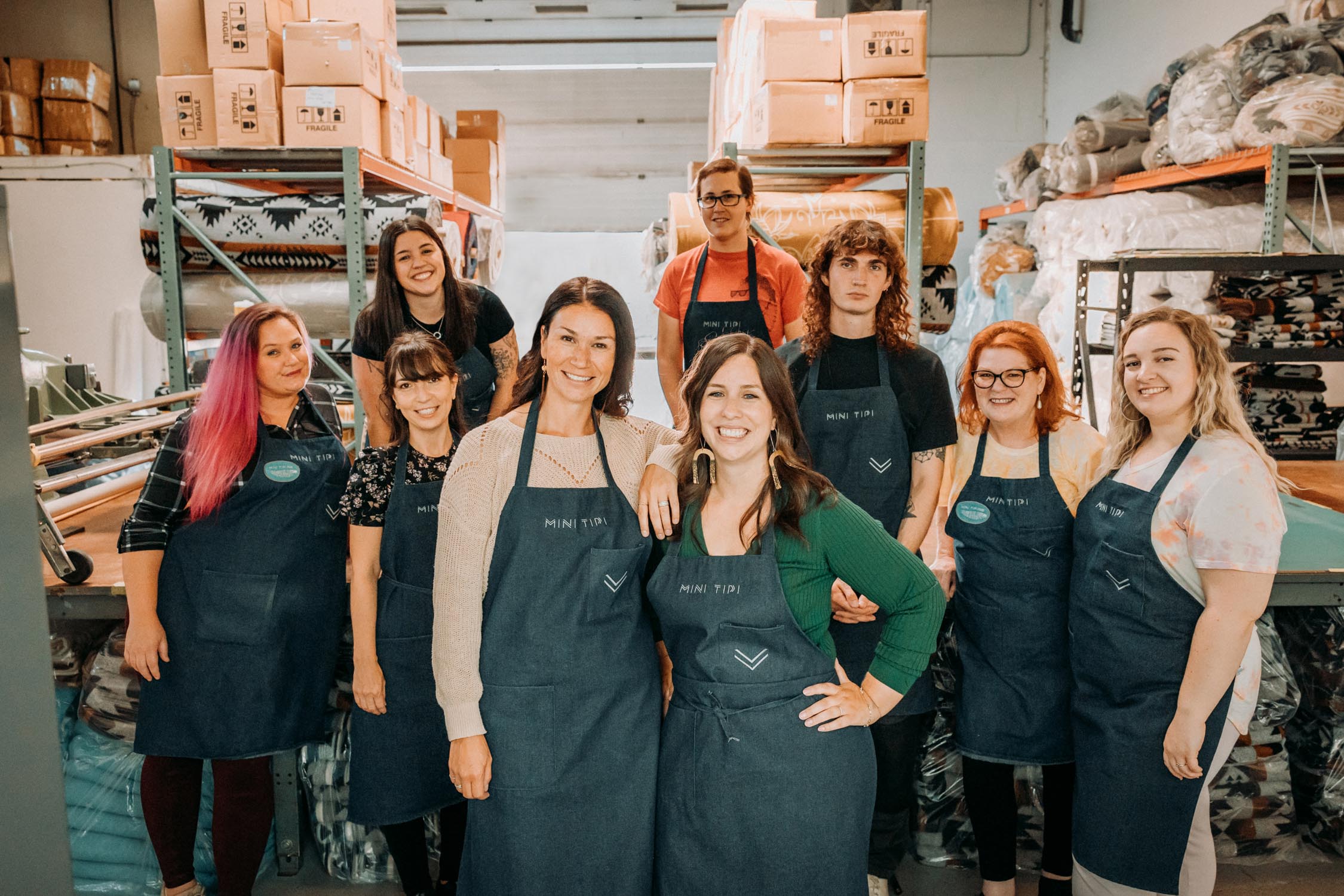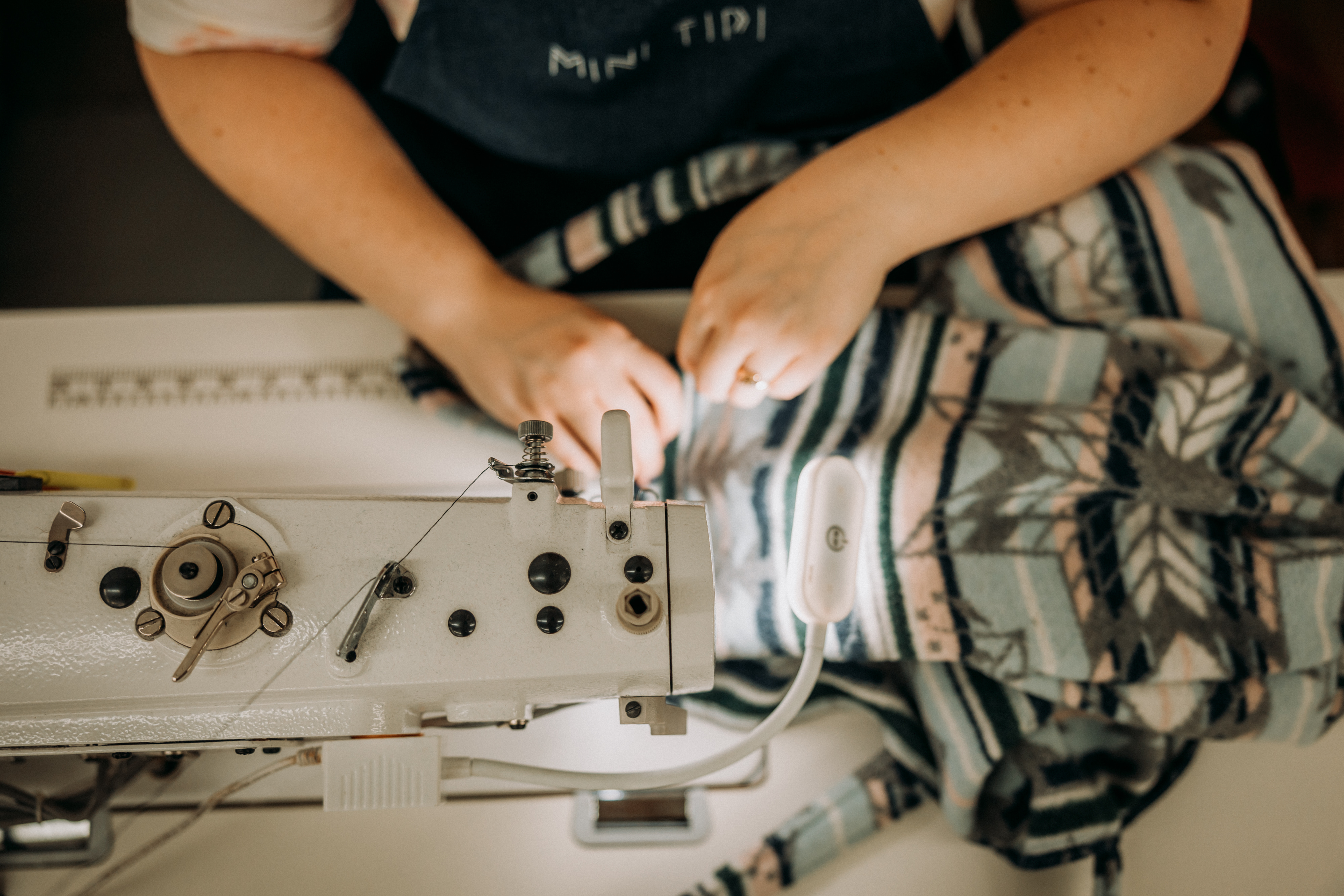
MINI TIPI: Weaving Indigenous and non-Indigenous communities together
MINI TIPI showcases the diversity of Aboriginal cultures with accessories featuring traditional motifs.
From: CED - September 25, 2023
Summary |
|---|
|
Business : MINI TIPI CED’s support has enabled the business: to acquire and install production equipment and purchase software and computer equipment, in addition to developing a pre-commercialization strategy. |
MINI TIPI, a Gatineau business co-founded by Mélanie Bernard and Trisha Pitura with strong roots in its community, celebrates the wealth and diversity of Indigenous cultures by manufacturing high-quality accessories with authentic motifs from various Indigenous nations (covers, bags, shawls, mittens, and ponchos for children). The SME, which makes 70% of its sales online, also offers its items in some 50 stores from coast to coast to coast.

Friendship at first sight
MINI TIPI came into being when Mélanie Bernard, a non-Indigenous woman from Gatineau, and Trisha Pitura, an Indigenous woman from Sudbury and member of the Nipissing First Nation, met during a mother-baby swimming class.
They quickly became friends, without suspecting this would be the starting point for a tremendous entrepreneurial adventure. “Working together went without saying. We share the same values, the same authenticity, the same desire to make a difference; in short, we had so much in common. This is what led to the founding of MINI TIPI in 2016,” states Mélanie.
Meteoric growth
The small business, located in Gatineau on the traditional territory of the Algonquin Anishinabeg Nation, started in a basement. It really began to take off two years later, when the co-founders changed their business model. At that time, they decided to replace the baby items they were marketing with accessories carrying Indigenous motifs manufactured from fabric found in superstores.
They then set out to find authentic Indigenous fabrics, but in vain. They therefore chose to work directly with Indigenous artisans for designs and to pay them royalties for their work in order to give back to the community. The business has since grown non-stop, in addition to receiving several awards.
In 2021, the businesswomen moved into their first facility, which soon became too small. The following year, they rented an adjacent facility to meet the increasing demand. What was initially a hobby has become an SME that sells its items across Canada and even exports 10% of its production to the United States.
Women entrepreneurs who complement each other

The two women entrepreneurs each have their area of expertise and complement each other marvellously. Self-described old soul Trisha is responsible for developing the accessories and designs. The textile lover has an eye for creating and choosing motifs and a flair for finding artisans to collaborate with. For her part, Mélanie, an enthusiastic changemaker, is responsible for branding, sales, and marketing. What is important for her is to convey on social media and on their website powerful, inspiring messages in line with their business’s mission.
Environmental responsibility and Indigenous culture at the heart of the business
Keen to bring the communities together, the co-owners developed a line of unique, elegant products that celebrate Indigenous culture. During the creation process, Trisha—who herself draws the motifs and collaborates with Indigenous artists—reflects on the history of each motif and the teachings that can be drawn from them to be shared.

They also want to minimize the environmental impact of their business. “We have to think of future generations and preserve the environment as much as we can. That is why we use recycled fabrics and ensure any leftover materials are reused as much as possible. What we cannot use, we donate to schools or various Indigenous organizations,” explains Trisha.
And they also have great ambitions for MINI TIPI. “In recent years, we have reviewed the manufacturing processes for our six original products. This fall, we want to have some fun, including by adding a poncho and a scarf to our collection. One of our major objectives is to showcase Indigenous culture on the global scene. A bit of a crazy dream is to work with the Canadian Olympic Committee in this regard,” concludes Mélanie.
Yet another dream the two close-knit friends intend to fulfill.
Ancestral motifs with spiritual figures
Behind each of MINI TIPI’s motifs, there is a teaching, and their interpretation is important for the co-founders, who want to use the weavings as a vehicle for culture. The Indigenous peoples who inspire MINI TIPI are guided by the sacred circle and the medicine wheel. On many of their products, you can find the thunderbird, a sacred bird representing power, protection, strength, and survival that captures the essence of MINI TIPI’s main aims. The Anishinaabe see the thunderbird as one of the greatest spiritual beings; it protects us and sustains the life of all living beings.